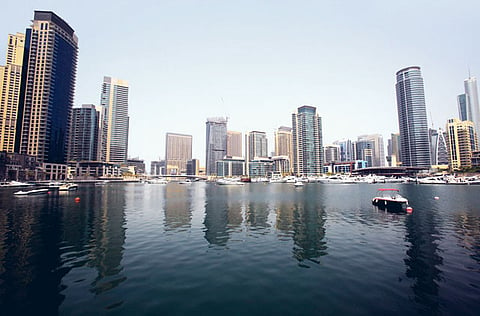Over-reliance on real estate holding Islamic markets back
Experts call for new regulation governing sukuk issuance and the transfer of property

Dubai: Despite a retail-driven demand for Islamic products, government support and a rising number of global investors comfortable with investing in the Sharia-compliant assets, challenges remain, analysts have said.
While the standardisation of documents and structures continue to remain points of disagreements among scholars and pose as obstacles, one of the main issues is Islamic finance’s focus on tangible assets, which has in fact led to a heavy concentration on real estate in the Gulf and in the UAE.
Speaking at the MEED Destination 2020 conference in Dubai on Wednesday, Khalid Howladar, vice-president and senior credit officer at ratings agency Moody’s, said the focus on tangible assets remained a business constraint.
Howladar said Islamic banks in the GCC region had fared much worse than their conventional counterparts because of their over reliance on real estate during the boom years.
While the risk is real, government has been called on to help develop the Islamic finance market.
Nomaan Raja, a partner at law firm Latham and Watkins, said the government should play a supportive role.
“It should not interfere so much into the market that it actually affects the dynamics of that market but [it must] provide a supporting role by way of legislation and regulations, which bring in enough clarity so that investors know exactly what they are getting into,” Raja said.
He cited the example of the government of Hong Kong, which enacted legislation facilitating the issuance of sukuk by clarifying how the transfer of property that takes place through ijara-based sukuk will be treated in a particular way. He added that Malaysia was another good example to study.
In the UAE, the Emirates Securities and Commodities Authority (ESCA), which is the regulatory body, is working on a new set of regulations for the issuance of sukuk. However, the DIFC has its own regulations governing sukuk issuance.
Islamic financial institutions also face problems when it comes to the universe of alternative assets, said Craig Hewitt, senior vice-president and head of business development at Nasdaq Dubai. He said risk management, for example in Treasury operations, has to be done in the conventional space as there is no futures contract available for Islamic institutions.
Hewitt said there remains much work to be done in Dubai and UAE when it comes to developing Islamic capital markets.
Moody’s Howladar also pointed to the human capital aspect as crucial to the success of the sukuk market.
Sign up for the Daily Briefing
Get the latest news and updates straight to your inbox


